|
|
Last Modified on Aug 20, 2020
The old adage “buyer beware” is generally true for minor purchases, but real estate purchases are treated quite differently; for most people, buying their dream home is the most significant economic transaction they will ever engage in. Because of this importance (to both parties), there are numerous disclosure requirements that sellers must satisfy when receiving an offer from a prospective buyer. This blog will explore what is required of sellers by the state of North Carolina and offer some advice to real estate agents.
Residential Property and Owners’ Association Disclosure Statement
State law requires sellers of residential real estate to complete a four-page form called the Residential Property and Owners’ Association Disclosure Statement, which consists of 38 questions that must be answered “yes,” “no,” or “no representation.” The last option means that the seller is not making a statement to the affirmative or negative, similar to “pleading the fifth.” This statement is provided by the North Carolina Real Estate Commission.
The questions have to do with various aspects of the house, including its construction date, condition of the foundation, exterior walls, and roof, fireplace, windows, floors, and other structural facets. Towards the end of the list, the form lists questions regarding any liens or lawsuits against the property.
The general purpose of the document is to ascertain any known or material defects with the property. Sellers are not responsible for defects that they do not possess knowledge of. Once completed, a copy of the statement needs to be sent to the prospective buyer at the time of an offer or prior to the offer. It isn’t a good look to hold onto the disclosure statement until the last minute, though, as prospective buyers are given three days to review the form and, if desired, to rescind the offer (if they made an offer before receiving the statement).
In addition to the disclosure statement, real estate sellers must also disclose details about a property’s mineral, oil, and gas rights (if applicable).
What About Items Not on the Disclosure Statement?
During a real estate agent’s conversations with a seller, he or she might find out about a previous problem with the house that has since been rectified or is not required to be disclosed (such as a leak or mold issue that was cleared up). Even if you believe that the issue has been resolved and no evidence remains, it might be a smart move to disclose anyway. Remember, while the disclosure statement protects buyers, it is also meant to protect the seller from litigation should the buyer wish to sue for non-disclosure of something.
Conclusion
Real estate transactions, especially the closing process, are fairly complicated (and extremely consequential for all involved parties). Thomas & Webber Law at the Lake is immensely experienced in providing efficient legal services at closing, and we would be honored to ensure that your next transaction is a smooth and fun time! Give us a call at 704-663-1600 to discuss your options with us today.





